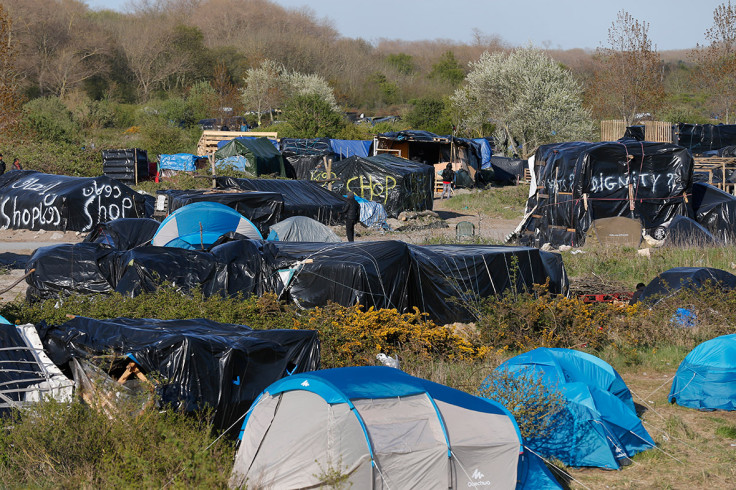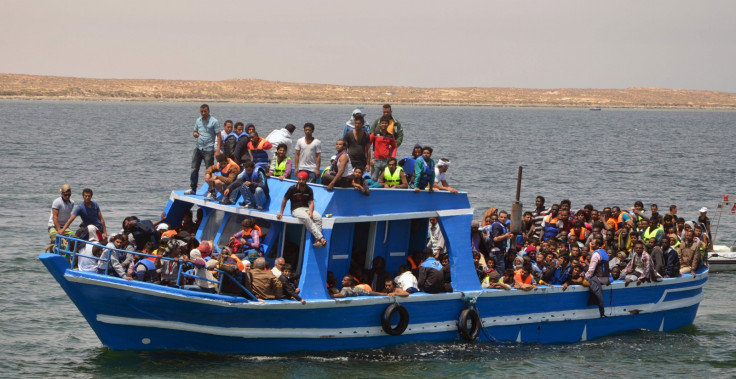Migrant crisis: What if there were no borders, no nationalities and we were all equal citizens of the world?

I have this new €50 note and I am ready to give it to you. Will you take it? What if I squeeze it in my hand a bit? Do you still want to have it? What if I drop it on the ground and step on it with my dirty shoes? Will you take it, dirty and crisped, if I give it to you?
Some of you probably will. You will want to have it, because even if it is dirty and not new any more, it didn't lose its value. It is still money, still €50 (£35, $55), and many of us want to have it, right?
I also have these two new friends in Paris, Dierry and Ousmane. They wear clothes that look slightly old and are sometimes crumpled as they often sleep in the streets. Dierry and Ousmane arrived a few months ago in Italy by boat and headed to France by walking and driving.
These 16-year-old boys are among those making headlines in the world media and whose destinies are hysterically discussed by politicians. Dierry and Ousmane are amongst those, who unlike the €50 note, are treated as if their value as human beings was inferior to others in France. These boys are migrants, two amongst the 50 million displaced people in the world.
'I just want to go to school. I went for 2 years in Mali. Ousmane didn't go to school as his parents died. But we speak french and maybe could study, like everyone here. Like people, you know.'
Probably only a few people did not hear about the world's ongoing refugee crisis. After a boat sank last April in the Mediterranean Sea causing the death of more than 800 people, the European Commission proposed an emergency plan to address the issue.
This plan proposed establishing a binding refugee quota system for EU countries, a change in the international immigration law, as well as relocate 40,000 asylum-seekers from Greece and Italy to other European states over the next two years in the name of solidarity.
But June's much-awaited summit brought nothing but disagreements between the European states. As a result, the binding quota system was replaced by a system based on voluntary offers from the countries that could therefore simply escape any obligations.
Even though the summit was hypocritically organised in the name of solidarity and equality, it was expectedly balanced with heated right-wing speeches by politicians whom accused migrants of eating the bread of European citizens and stealing their jobs or threatening their security.
At least for once, this is a rare occasion to be thankful to the right-wing fascists for showing us the true policy of our authorities as their speeches explain well what is achieved by many of our deputies, some of whom keep screaming for equality.
On the ground, migrants are facing ignorance and often brutality from the authorities of European states. Just a few weeks ago, the police destroyed the refugee camp in Paris at Porte de la Chapelle, and violently expelled a few days later some migrants that regrouped at rue Pajol.
There, about 350 people were pushed by police officers from their tents or mattresses, and about 100 were arrested, including French citizens who tried to protect some of the migrants from police brutality.
Socialist France failed to give an adequate explanation for the unnecessary violence of police and whether they had any plans on providing shelters for asylum seekers. Ousmane and Dierry were at Rue Pajol as well. They told me later that many of the people from the camp were expelled from the country in the days following the police action.
Only those whom had already applied for asylum and miners like them could stay. Nevertheless, they still do not have a shelter, nor any help from the state. Only volunteers and associations are trying their best to bring clothes and blankets. Free food was proposed by a mosque, but only for those whom attended the prayers.
Ousmane and Dierry were excitedly waiting to be taken in charge by French authorities who by law are suppose to provide help and temporary permits to stay for migrants who are less than 18 years old. Yesterday their applications, as many others, were rejected with no further explanation.
"I just want to go to school. I went for two years in Mali. Ousmane didn't go to school as his parents died. But we speak French and maybe could study, like everyone here. Like people, you know,' says Dierry sitting on a bench in Paris in front of the prefecture.
"Yes, we are like people... people. " repeats Ousmane, standing near the sign "Liberté, Egalité, Fraternité" on the building of the prefecture...

The UN's refugee agency reported last month that the global number of refugees exceeds 50 million and that it is the highest figure since Second World War. While right-wing politicians are using the crisis to spread hatred and are calling to end the Schengen zone and for EU to strengthen its borders against migrants, others keep paying official visits to countries with authoritarian regimes that are often a cause of migration.
Surely, none of them contribute to the search for a solution to the migrant crisis with such acts, so that Dierry and Ousmane and many others could live "like people"...
Having refugee papers myself, I often hold them in my hands and stare for a long time, as it reminds me that just because of having or not having these papers, many have unequal rights to live a happy life or even simply survive.
These papers remind me that they often indicate our value as human beings in society. These papers also remind me that there are millions of people in the world who suffer all their lives or die just because they happen not to be born European, American or Australian... After all, these papers tell me that our dreams of equality have not been achieved yet.
But what if there were no borders and no nationalities? What if we were just human beings, equal to each other everywhere in the world? What if we only had passports of citizens of the world? What if we had education, employment and security for everyone wherever we live?
What if dropping all political and economical links with authoritarian regimes and rejecting them from the world political system, would destroy them, so that people could feel safe and satisfied wherever they are?
What if simple dreams or utopian ideas have power to change the world one day.
© Copyright IBTimes 2025. All rights reserved.






















